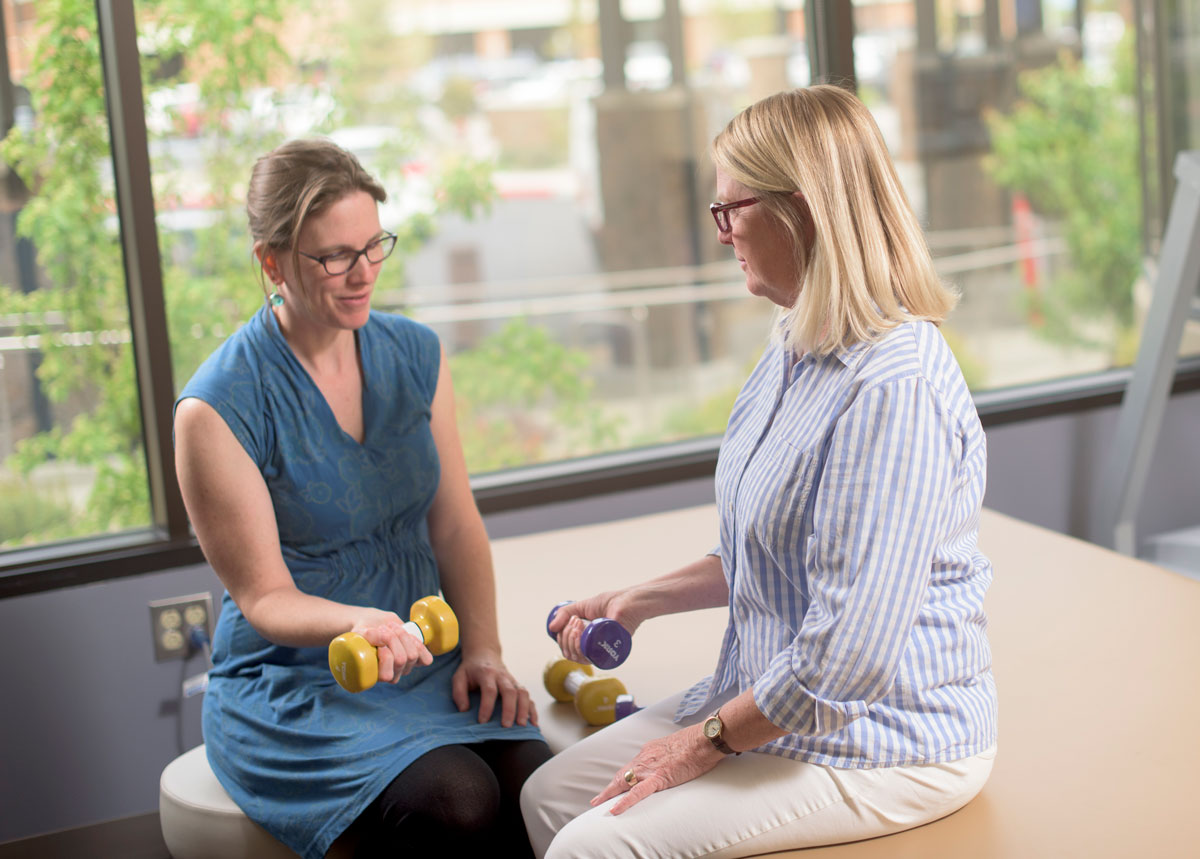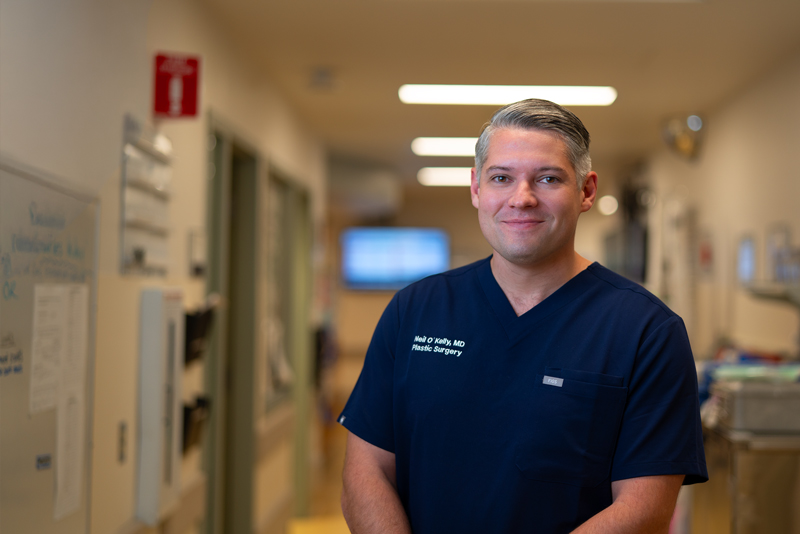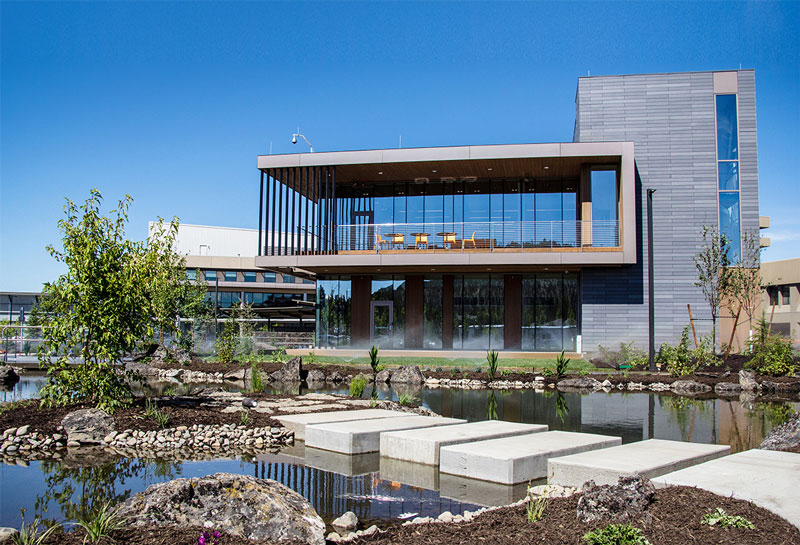Meredith Wampler-Kuhn has worked with cancer paients for more than 17 years and has been interested in starting a rehabilitation program focused specifically on helping them for the past five.
Her vision is now a reality at the St. Charles Cancer Center in Bend where two rooms have been dedicated to providing physical therapy, occupational therapy and speech therapy to patients in the same location as their cancer treatments.
“About 10 years ago I did some clinical research on balance impairments in patients with breast cancer,” said Wampler-Kuhn, a physical therapist who has worked for St. Charles for the past two years. “I can’t believe I’m finally getting a chance to implement all of these ideas.”
Because so many advances have been made in treating cancer, Wampler-Kuhn said she sees a greater need for rehabilitation services focused on the unique needs of cancer survivors.
“Treatment has advanced so much, people are surviving cancer,” she said. “They are wanting to get back to living their lives. That’s where we come into play – getting people back to doing what they love.”
Chemotherapy can cause neuropathy that affects balance and can lead to falls. Surgery to remove lymph nodes can cause swelling in the arms or legs known as lymphedema. And radiation for cancers in the head and neck can often result in swallowing difficulties.
All of these issues and more can be treated with rehabilitation services. Other common problems associated with cancer or cancer treatments include fatigue, weakness, pain, restricted joint mobility from surgery or radiation, vision changes and what’s known as “chemo brain,” or problems with thinking and memory. These problems can lead to limitations in day-to-day mobility and function at home or work, which can be frustrating for patients.
“We know that many of our patients with cancer experience symptoms related to their cancer or to our cancer treatments,” said Dr. Linyee Chang, medical director of St. Charles Cancer Center.
“These symptoms can be quite disabling. By identifying and treating these symptoms earlier, we can improve their quality of life.”
By housing rehabilitation services in the cancer center, Chang said, it will be easier to incorporate them into patients’ treatment schedules. WamplerKuhn said she believes that because the therapists will become part of the cancer team, patients who may benefit from the services will receive earlier intervention resulting in better outcomes.
“Not 100 percent of people will need rehab,” she said. “We’ll identify high-risk folks and watch them closely throughout their treatments. We are also happy to see anyone who has self-identified a problem that may be helped by rehabilitation services. They will just need to ask their physician to make a referral to rehabilitation services.”
Being located onsite at the cancer center will make it possible for rehab appointments to be tagged onto other cancer treatment services so that patients only need to make one trip to the hospital for their care.
“We are all people who have a passion for oncology rehab,” Wampler-Kuhn said. “We want to help patients get back to doing what they love to do.”
To learn more, visit our Oncology Rehab page. To make an appointment with a prescription from your doctor, call 541-706-5800 and ask for the oncology rehab scheduler.





